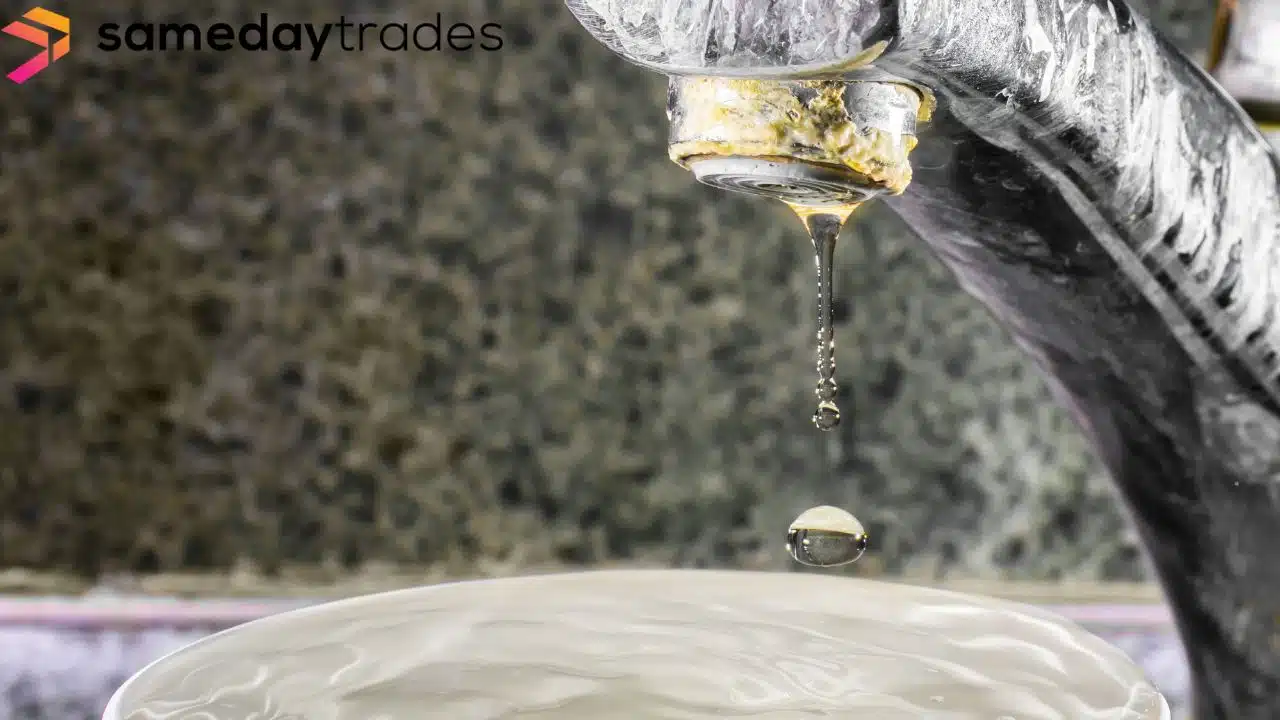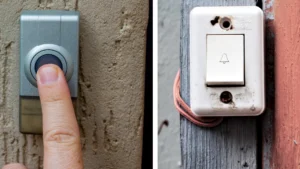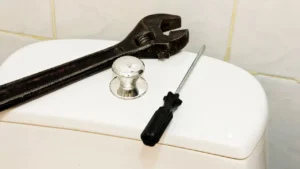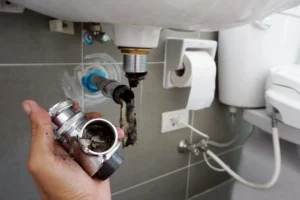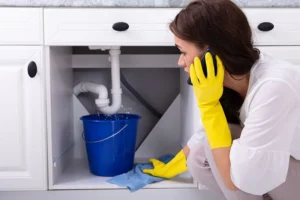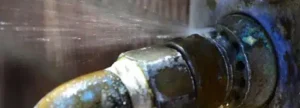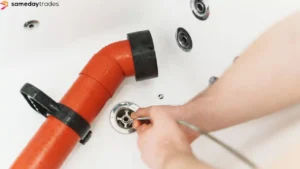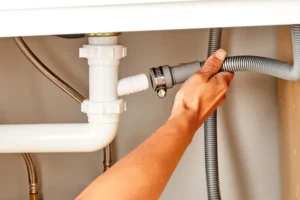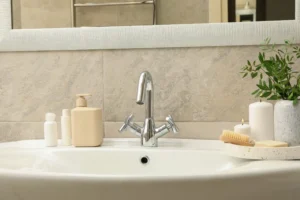If you live in Adelaide, you’ve probably noticed white residue on your showerhead, stiff laundry, or that your kettle doesn’t last as long as it should. These aren’t just minor annoyances—they’re signs of hard water doing a slow, silent number on your plumbing system.
Hard water might not make headlines, but over time, it can lead to costly plumbing issues, reduce appliance lifespans, and affect your everyday water quality. In this article, we’ll break down how Adelaide’s hard water forms, what it’s doing behind your walls, and how to protect your home before those quiet issues turn into loud expenses.
What Makes Adelaide’s Water ‘Hard’?
Adelaide’s water supply is known for its relatively high mineral content, especially calcium and magnesium. When water flows through soil and rock, it picks up these minerals—and by the time it gets to your tap, it’s packed with enough to leave a chalky trail.
According to SA Water reports, Adelaide’s water is considered moderately to very hard, depending on the area. Some regions sit above 200 mg/L of calcium carbonate, which is enough to start clogging pipes and building up limescale in appliances.
Compared to softer water cities like Hobart or Melbourne, Adelaide residents are more likely to face the effects of mineral-heavy water. The result? A plumbing system that slowly deteriorates if left unchecked.
Limescale Build-Up: The Silent Clogger
One of the most obvious signs of hard water is the white, crusty stuff on your taps and showerheads. That’s limescale—a stubborn deposit left behind when mineral-rich water evaporates.
But while it might just look like a cosmetic issue on the surface, limescale is also busy forming where you can’t see it. Inside your pipes, heating elements, and even your coffee machine, limescale is building a fortress that reduces efficiency and narrows water flow.
It’s a bit like cholesterol for your plumbing—except instead of a heart attack, you get burst pipes or a water heater that quits right before winter.
Pipe Corrosion and Blockages
As limescale builds up, it creates more than just blockages. Over time, those minerals can react with the metal in your pipes—especially copper—and trigger corrosion. That’s when things get really fun (and by fun, we mean expensive).
Corroded pipes may start to leak, create water pressure issues, or even contaminate your water with metal particles. You might notice orange stains, an odd taste, or flakes in your water—none of which pair well with breakfast.
Even PVC pipes aren’t immune. While they don’t corrode like metal, they can still clog up with scale, leading to lower pressure or even full-blown backups. And nobody wants that on a weekend.
Appliance Wear and Tear
Water-using appliances suffer the most under the stress of hard water. Dishwashers, washing machines, hot water systems, and kettles—they’re all prone to premature ageing when minerals get involved.
Mineral buildup reduces heating efficiency in hot water systems, making them work harder and burn more energy. Washing machines may leave clothes feeling stiff or not completely clean. Dishwashers lose their sparkle (and so do your glasses). Even your fridge’s water dispenser could slow to a trickle.
Hard water also voids some appliance warranties if damage is traced back to mineral buildup. So if your brand-new hot water heater breaks down after just a couple of years, you may be footing the bill.
Signs You Might Have a Hard Water Problem
Not sure if hard water is the culprit behind your plumbing woes? Keep an eye out for these common signs:
- White, chalky residue on taps, tiles, and shower screens that just won’t scrub off.
- Low water pressure, especially in older homes with metal pipes.
- Clothes that feel stiff or scratchy after washing.
- Appliances breaking down more often than they should.
- Funny-tasting water or flakes in the glass.
- Soap scum that clings to everything, no matter how much you clean.
If these sound familiar, your home could be quietly battling mineral buildup behind the scenes.
What You Can Do About It
The good news? You don’t have to replace all your pipes or swear off using the dishwasher forever. There are several smart (and affordable) ways to protect your plumbing from hard water damage.
Install a Water Softener
This is one of the most effective long-term solutions. Water softeners work by removing calcium and magnesium from your water before it reaches your taps. Some systems use salt, while others rely on alternative technologies like magnetic or carbon filtration.
They’re not cheap upfront, but they often pay for themselves by extending the life of your appliances and reducing your repair bills.
Use Water Filters Where Needed
You can install point-of-use filters at taps or under sinks to protect specific appliances, like your kettle or dishwasher. While they won’t treat your whole system, they can help cut down on scale buildup in targeted spots.
Descale Regularly
Use descaling products on your showerheads, kettles, and other fixtures every few months. It’s a temporary fix, but it helps minimise buildup between professional servicing.
Clean Faucet Aerators
Those little screens on the end of your taps? They catch more than you think. Unscrew and rinse them regularly to avoid buildup and restore water pressure.
How a Local Plumber Can Help
When you’re dealing with long-term hard water damage, DIY fixes only go so far. That’s where a professional comes in. A licenced plumber can:
- Inspect your plumbing system for corrosion or blockages.
- Replace affected pipes or install protective fittings.
- Recommend and install whole-house filtration or water softening systems.
- Provide regular maintenance to keep your plumbing healthy for the long haul.
And if you’re looking for someone who understands Adelaide’s unique water challenges, plumbers in Adelaide are well-versed in dealing with these very issues.
Conclusion
Hard water isn’t the worst thing that can happen to your home—but it’s definitely one of the sneakiest. Over time, the mineral buildup can clog pipes, corrode plumbing, wear down appliances, and cost you more than just your patience.
Fortunately, there are plenty of ways to protect your home and stay ahead of the problem. Whether it’s installing a softener, descaling regularly, or getting help from a local expert, the key is not waiting until your plumbing system throws in the towel.
Your pipes might not be able to speak—but if they could, they’d probably be asking for a little help with all that calcium.
Frequently Asked Questions
What is considered hard water in Adelaide?
Adelaide water is considered moderately to very hard, often containing over 200 mg/L of calcium carbonate, depending on the area.
Can limescale damage my hot water system?
Yes, limescale buildup can reduce heating efficiency, increase energy costs, and eventually lead to system failure if left untreated.
How do I know if my pipes are corroding?
Look for signs like rusty water, metallic taste, reduced water pressure, or unexplained leaks. These could indicate internal pipe corrosion.
Is a water softener expensive to install?
Costs vary, but whole-house water softeners typically range from $1,000 to $3,000, including installation. Long-term savings often offset the upfront cost.
Will my water taste better after treating hard water?
Yes, many people report a noticeable improvement in taste after installing a filtration or softening system.
Can hard water stains be permanently removed?
Hard water stains can be cleaned with vinegar or descaling products, but they’ll return unless the underlying water hardness is treated.
How often should I descale my appliances?
Ideally every 1–3 months, depending on usage and how hard your water is.
Can hard water cause health issues?
Generally, no. Hard water is safe to drink, but it may irritate sensitive skin or exacerbate eczema in some individuals.
Will softening water affect my soap usage?
Absolutely. You’ll use less soap, shampoo, and detergent with softened water, as it lathers more easily.
What’s the easiest way to test water hardness at home?
You can buy a water hardness test kit online or at hardware stores. SA Water also provides reports and testing information.

